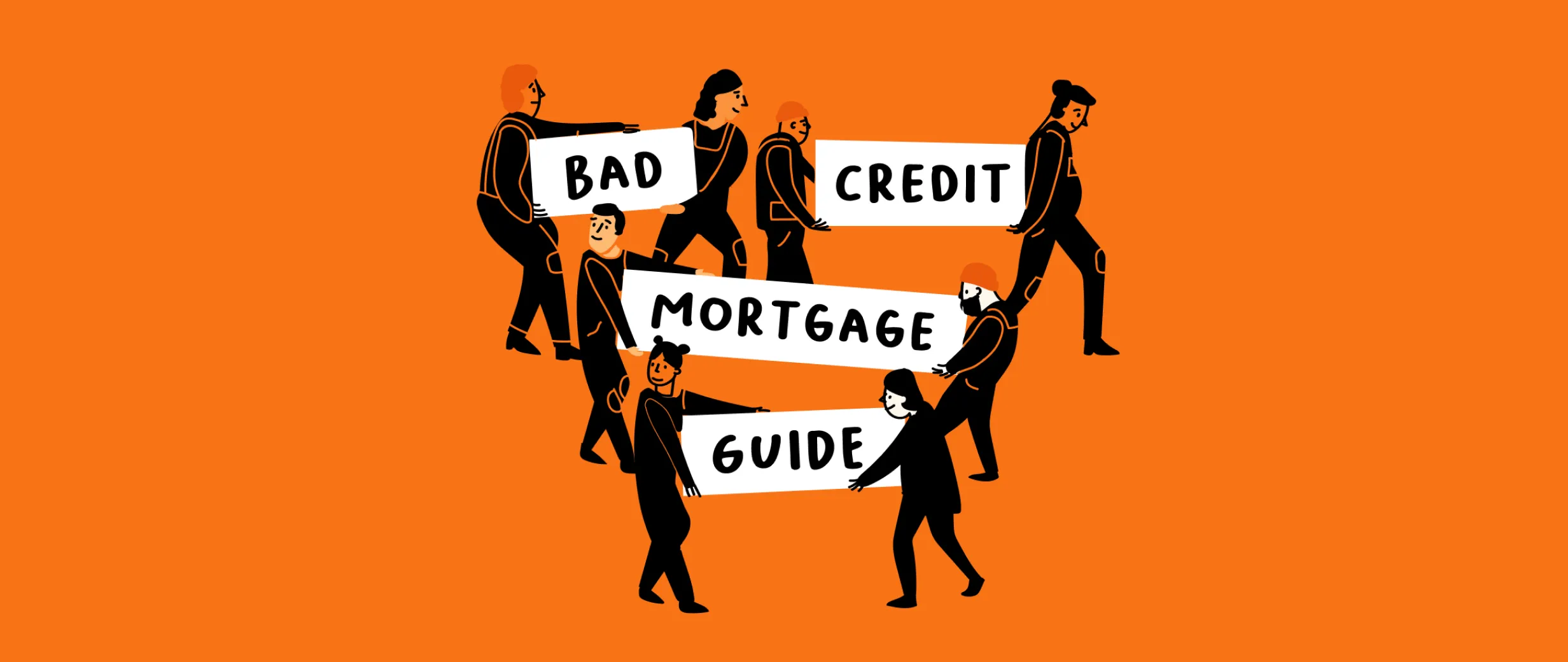Getting a Mortgage After Late Payments
Had a mortgage declined due to a late payment? We understand and can help you explore mortgage options that suit your needs.
Your home may be repossessed if you do not keep up repayments on your mortgage.
Exclusive broker partner to

9 mins
Updated: Nov 16 2025
9 mins
Updated: Nov 16 2025
On this page
Please be aware that by following any external links you are leaving the Haysto website. Please note Haysto nor HL Partnership Limited are responsible for the accuracy of the information contained within external websites accessible from this page.
On this page
Life happens, and sometimes, late payments are unavoidable. But whilst they can affect your credit score, a late payment shouldn’t stop you from getting a mortgage.
If you have a history of late payments on your credit record, read on to find out how we could make your mortgage possible when others can’t.
Late payment Vs missed payment: what’s the difference?
A late payment is exactly that: a payment you did make, just not on time. A missed payment is one you haven’t yet made. A late payment stays on your credit record for six years but must be more than 30 days overdue before it can be registered.
For example, let’s say your minimum credit card payment was due on the 7th of the month, but it wasn’t paid until the 14th, so it was seven days late. This wouldn’t be marked on your credit record because it was paid within the 30-day billing cycle. But, if that payment wasn’t settled until the 10th of the following month, that’s over 30 days, and it can be registered as ‘late’. If it remains unpaid, it will be classed as ‘missed’.
A missed payment means your credit card account will fall into arrears for that amount. If you miss multiple payments (typically no less than three), your account can eventually be closed and registered as a default.
Can your mortgage be declined due to a late payment?
Potentially, yes. But this depends on the number of late payments on your Credit Report, when they occurred, how much they were for, and whether the late payment was for a secured debt, like a mortgage, or an unsecured debt, like a credit card or overdraft.
One late payment to your credit card, say, three years ago, will likely be overlooked by most mortgage lenders. But, a series of late mortgage payments in the last 12-24 months will be seen as more severe by many high-street lenders, who could then reject your mortgage application.
Which mortgage lenders you apply to can also make a big difference. Through their automated decision-making systems, mainstream lenders tend to adopt a ‘one size fits all’ way of measuring applicants. When their computers pick up a possible red flag like a late payment, it can lead to an automatic ‘no’.
Specialist mortgage lenders use a more human approach to weigh the risks and look at each application on a case-by-case basis. This method is more likely to produce a more positive outcome.
This is where we can help! These specialist lenders are usually only available through a mortgage broker. Our mortgage team knows exactly where to look and who the right lenders are to consider you for a mortgage with late payments on your record.
Simply make an enquiry, and one of our Mortgage Experts will contact you straight away to get started.
Can you get a mortgage with late payments?
Yes, it’s possible. Late payments are a common credit issue for lots of people. The older they are, the better your chance of getting the mortgage you need, as more lenders will be willing to consider your application.
If the late payments are relatively recent (registered in the last 6-12 months), it can be trickier as the pool of lenders available will be smaller. If you are accepted for a mortgage you may have to pay slightly higher interest rates and a larger deposit than someone with a perfect credit score.
How do late payments affect your credit score?
Late payments are considered a minor form of bad credit, and whilst one in isolation won’t cause any terminal damage, it only takes one to lower your credit score. Multiple late payments will cause your credit score to fall even further.
Lower credit scores make it harder for you to qualify for the most competitive interest rate terms and lowest deposits when applying for a mortgage than someone with a perfect credit score.
Read more in our Guide: What Credit Score Do You Need For a Mortgage?
Can you get a late payment removed from your credit file?
It’s possible. If you think you’ve had a late payment wrongly registered, you can ask the Credit Reference Agency to investigate on your behalf. They will contact the credit company and ask them to double-check their records. If the information is inaccurate, it will be removed.
Access Your Credit Report
To get a full view of your credit information from all three agencies, use Checkmyfile free for 30 days, then £14.99/month (cancel anytime).
Get Started NowHow will late payments affect your mortgage application?
This will vary from lender to lender. In the case of late payments, a mortgage lender will want to look more closely at the number of late payments showing on your credit history, when they were registered, the payment amounts, and what type—secured or unsecured.
Unsecured late payments relate to everyday debt not secured against anything you own (usually your home), such as credit cards, personal loans, store cards, mobile phone contracts and overdrafts.
Secured late payments are for credit agreements ‘secured’ against an asset, which can be reclaimed if you fall behind, such as your home or car. Payments for your mortgage and car finance are usually a household's two largest financial outgoings. So, missing those payments leaves a higher debt to repay.
Both will lower your credit score, but mortgage lenders view late payments on secured debt as more severe than those on unsecured debt and can have a more negative impact on your application.
In addition to your credit score, a specialist lender will also take into account all other aspects of your application before reaching a decision, such as:
Your age
Employment record
How you’ve managed your finances since the late payment
Your income and outgoings
The size of your mortgage deposit
The type of property you’re looking to buy
If your overall application looks strong—with a solid employment record, high income, and a healthy deposit—and your late payments are quite old, you stand a better chance of getting the mortgage you need.
What happens if you miss a mortgage payment?
A single missed mortgage payment may not be a disaster. Your credit score might be affected, but the right thing to do is talk to your lender so they know and understand your situation. Don't ignore it!
Once you've told your lender, you'll have a grace period of one to two weeks to make the payment. A late fee will be added to the payment, and you'll need to make sure you pay it along with the usual mortgage payment.
If you don't make your payments after 90 days, your account can be marked as defaulted. At this point, talks of repossession might happen. Repossession is always a last resort, so there'll be chances to discuss options and get financial advice before it comes to that.
Your mortgage lender would prefer you to make your payments rather than take your home away, so they will likely offer advice and solutions. Let your lender know as soon as possible if you think you'll struggle to repay.
Mortgage lenders who accept late payments
Plenty of specialist mortgage lenders will consider applications from people with late payments registered on their Credit Report. These include (but aren’t limited to):
The Mortgage Lender
Aldermore
Bluestone Mortgages
Pepper Money
West Bromwich Building Society
All of the above mortgage lenders work exclusively with brokers and have a proven track record of success accepting applicants with this type of credit issue.
If you make an enquiry, one of our Mortgage Experts will be able to assess your current situation and offer guidance as to which lender is best placed to help you get the mortgage you need.
How far back do lenders look at late payments?
Like many other types of bad credit, once a late payment is registered on your credit record, it remains there for six years, and this is also how far back a mortgage lender will look when reviewing your credit history.
Not all lenders will be put off by seeing a late payment on your credit history, particularly if it’s an isolated case from a few years ago.
How much deposit will you need?
You could get a mortgage with a deposit as low as 5%-10% if it’s just the odd late payment recorded a few years ago. Anything more severe would likely mean you’ll need a higher deposit, possibly up to 10%-15%, depending on which lender you’ve applied to.

Let's Get Started
We Make Mortgages Possible
Our Mortgage Experts are fully qualified with experience in bad credit, self-employed and complex mortgages. They have a proven track record of getting mortgages for people who’ve been rejected elsewhere.
Get Started Now Get Started NowCan you get a mortgage with missed payments?
Yes, it’s possible, but a missed payment would raise more concerns for a lender than a late payment because it’s evidence you’ve been unable to meet your financial commitments in the past. It would depend on how long it’s been since you missed a payment and whether the amount was eventually repaid.
How long do missed payments stay on your credit report?
Missed payments stay on your credit report for six years. This doesn’t mean you have to wait until it’s been removed before applying for a mortgage. Some specialist lenders would consider an applicant with missed payments, but you may have to pay a higher interest rate and a larger deposit.
How to improve your chances of getting a mortgage with a late payment
If you want to apply for a mortgage, it’s understandable to be concerned you might not get accepted with late payments on your credit record. But finding out where you stand and taking the following steps is the right place to start.
Check your Credit Report. By downloading your Credit Report**, you can see how many late payments are showing on your history and when they were registered. So, there’ll be no surprises when a lender views the same information. You can also check for any errors or inaccuracies and have them removed before you submit your mortgage application.
Repair your credit score. Regardless of how long it’s been since your late payments were registered, it’s important to do all you can to improve your credit score. Check you’re registered on the electoral roll*, and all other financial commitments are paid on time. Keep checking your credit record to see if your score is improving. You should also avoid applying for any other forms of credit unless necessary.
Speak to a mortgage broker. An experienced broker will know exactly who to apply to and how to get your mortgage approved with late payments on your credit record, saving you a lot of time and unnecessary hassle.
**When you click through to our affiliate links, we may earn a small commission at no extra cost to you. We only recommend sites we trust and believe in.
How Haysto could make your mortgage possible
At Haysto , we’ll make sure you’re matched with one of our fully qualified Mortgage Experts. They have specific experience arranging mortgages for people in a similar situation and will understand how to make this possible for you.
Each of our customers gets four experts working on their case. Our dedicated team will guide you through the whole mortgage process from start to finish, including:
Ensuring your mortgage application is ready for submission within 24 hours
Searching over 12,000 mortgages to find you the best terms possible
Providing a true Agreement In Principle (AIP) - one you can trust directly from a lender
£100 gift card if we can’t make your mortgage possible, but another broker can
Just make an enquiry, and one of our Mortgage Experts will contact you immediately. Rest assured, if there’s a mortgage solution out there for you, we’ll find it.
We Make Mortgages Possible
Our Mortgage Experts are fully qualified with experience in bad credit, self-employed and complex mortgages. They have a proven track record of getting mortgages for people who’ve been rejected elsewhere.
Get Started NowRelated Articles

Getting a Mortgage With Bad Credit
Bad credit doesn’t mean you can’t get a mortgage. Our guide to bad credit mortgages explains how we can help make your mortgage possible.
Read guide

Bad Credit Mortgage Lenders
Find out who the best bad credit mortgage lenders are and how Haysto could make your mortgage possible due to our strong working relationship with them.
Read guide

Can You Get a Mortgage With a Default?
Want to know if you can get a mortgage with a default? Find out how Haysto could help you.
Read guide
Information
Tools & Guides
Haysto, a trading style of Haysto Ltd, is an appointed representative of HL Partnership Limited, which is authorised and regulated by the Financial Conduct Authority.Registered Office: Haysto, Crystal House, 24 Cattle Market Street, Norwich, NR1 3DY. Registered in England and Wales No. 12527065
There may be a fee for mortgage advice. The exact amount depends upon your circumstances but will range from £599 to £1599 and this will be discussed and agreed with you at the earliest opportunity.
The guidance and/or information contained within this website is subject to the UK regulatory regime and is therefore targeted at consumers based in the UK.
Your home may be repossessed if you do not keep up repayments on your mortgage.








